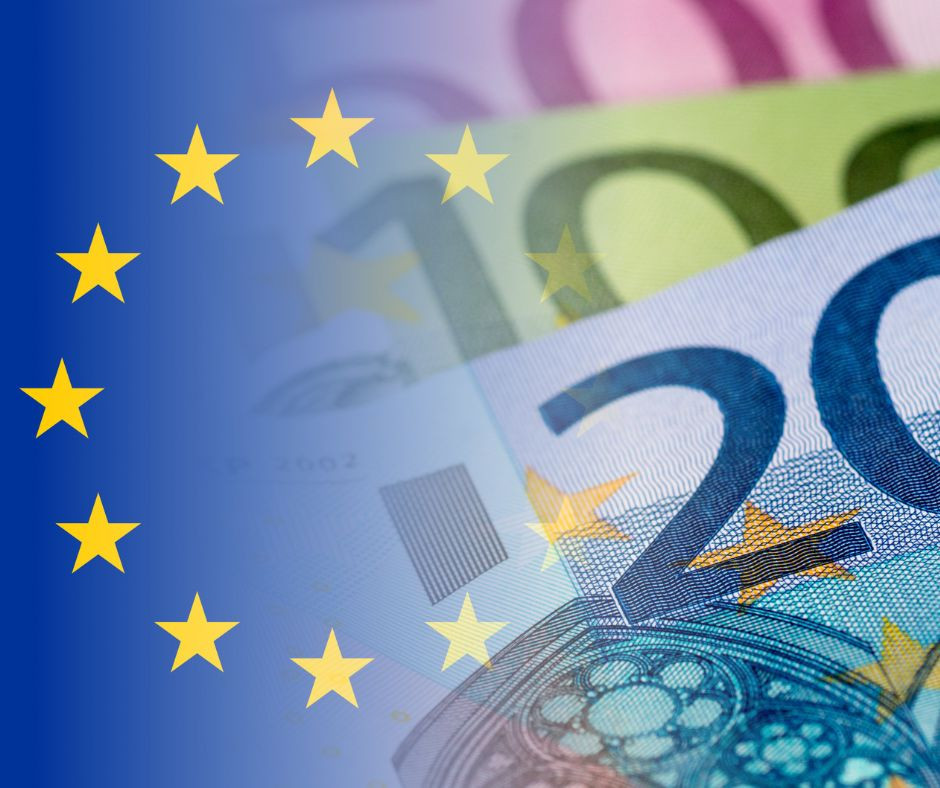Slovenia submitted a second request for payment under the Recovery and Resilience Facility
This second request includes the second and third instalments of funds to be passed on as grants and the first instalment of funds to be passed on as loans. The competent ministries deem that all 44 instalment-related milestones and goals, which have been set as a condition for the second request for payment, have been met. The European Commission will have the final say regarding the satisfactory fulfilment of milestones and goals, and thus the amount of payment*.
The gross amount of the second request for payment is currently still unknown, as the process of approval of the proposed amendment to the RRP by EU institutions is in progress in parallel with the submission of the request. The proposed amendment also includes a proposal to delete from the plan or to postpone the fulfilment of some milestones or goals to a later date, which the Government has already taken into account in preparing the second request for payment, which includes 44 milestones and objectives. According to the original version of the plan, the specified instalments included in the second request for payment would comprise a total of 60 milestones and goals. The gross amount of the second request for payment will be known when the Council of the EU issues the implementing decision approving the European Commission's opinion regarding the proposed amendment to Slovenia's Recovery and Resilience Plan.
The implementation of investments and reforms under the RRP is in full swing, as demonstrated by the achieved milestones and goals of the second request. Among other things, the Electricity Supply Act and the Investment Promotion Act have come into force, and the Broadband Networks Development Plan 2021-2025 and the Capital Market Development Strategy have been adopted. Funds have been tendered for drinking water supply projects and urban wastewater discharge and treatment projects. The procedures for the selection of projects for investment in tourist accommodation facilities and projects for the restoration of cultural heritage buildings, including the castles of Ormož and Črnomelj, have also been completed. Employers are providing permanent employment for 700 young people with the help of European Recovery and Resilience funding. Progress has also been recorded in the provision of public rental housing for young people, socially vulnerable and other marginalised groups. With this aim in mind, amendments to the Housing Act came into effect in order to encourage an efficient and balanced approach to the provision of housing by adjusting the amount of non-profit rent. A number of projects, such as Pod Pekrsko gorco residential area in Maribor and flats in Prvačina and Nova Gorica and Rogaška Slatina have been completed in this area.
The funds received under the Recovery and Resilience Facility have been employed to start the implementation of Slovenia's motorway network digitalisation project and the construction of the new Veterinary Faculty in Ljubljana.
The state pays for the implemented project activities from the previously obtained funds under the Recovery and Resilience Facility. To date, Slovenia has received a total of EUR 281 million in grants (EUR 231 million in advance payments and EUR 50 million for the first instalment), of which EUR 243 million have been paid to final beneficiaries. With the successful completion of numerous project selection tenders, we are entering a more intensive phase of RRP implementation and consequently the phase of making payments to final beneficiaries, and the Government hopes for the European Commission's consideration of the request at the soonest possible opportunity and thus payments to the state budget.
For more information on the implementation of the Recovery and Resilience Plan, please visit the website noo.gov.si.
* The procedure for evaluating Member States' requests is the following: In accordance with the legislative framework for the implementation of the Recovery and Resilience Facility, the European Commission pre-evaluates compliance with the milestones and goals indicated in the request within a period of two months. If it deems that the milestones and goals have been satisfactorily met, it submits a preliminary assessment to the Economic and Financial Committee whose opinion is taken into account in the final assessment of the request, whereupon the requested amount is disbursed. The process of evaluating Member States' requests may also take longer if, in the process of verifying the satisfactory achievement of the milestones and goals, the EC should require additional clarifications or expect additional activities that are necessary for the satisfactory fulfilment of the milestones and goals by the Member States, which should comply with such additional requirements within six months. A Member State that meets all Commission requirements receives the requested amount in full.


